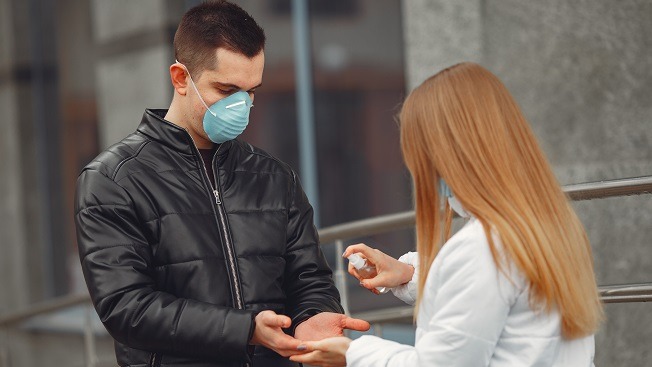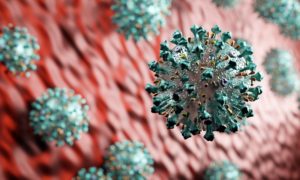We created this updated COVID-19 stay safe guide for prostate cancer patients to help calm those going through treatments, survivors and their caregivers. The World Health Organization declared Coronavirus disease (COVID-19) outbreak a controllable pandemic on March 11 because of the high speed and scale of the transmission. In four months since it was first identified in Wuhan, China, back in December 2019, it has become a global emergency.
What is COVID-19?
To lessen potential anxieties about this health threat, you first have to know what it is. Coronaviruses are a group of viruses that affect both animals and humans. There are around 7 of them and they were named for their surface, which has crown-like spikes.
The main human coronaviruses were discovered in the mid-1960s and they carry names like 229E (alpha coronavirus), NL63 (alpha coronavirus), OC43 (beta coronavirus), HKU1 (beta coronavirus), MERS, SARS, and COVID-19. The first four get people infected around the globe in a normal matter, but the last three infect animals, both pets and farm animals, and then evolve into new viruses that disrupt humanity and have higher death rates.
Scientists believe that the current coronavirus mutated into two strains – L and S, but this is a young study which the WHO didn’t approve, yet. It’s still good news that they are studying this affliction, but you have to know that its evolving capabilities make it that much harder to develop a vaccine.
Nonetheless, a treatment is being created and even if there aren’t any launch dates available for the cure, more information will follow this year. For now, COVID-19 can be confirmed with a laboratory test.
How does COVID-19 spread?
The disease is spread through respiratory droplets that last in the air or on surfaces for many hours. This means that people can get sick by staying too close to each other, or by touching an area or an object that was contaminated with the virus and then reaching their mouth, nose or eyes.
The incubation period is somewhere around 2-14 days and this is why quarantine is advised. The main symptoms are like the flu, which include high fever, dry cough, runny nose, tiredness and difficulty breathing.
To support your body in normal conditions you have to rest, control your fever, avoid exposure and drink lots of fluids. It’s also important to keep your spirits high and only get information from official sources.
What protective measures to take against COVID-19?
The WHO’s main global advice is to prepare, learn as much as you can, in isolation. The second piece of advice is to detect, prevent and treat. Then comes the reduce and suppress step, followed by the fourth, which is innovate and improve.
For people, this translates into staying indoors as much as you can. Then, wash your hands for 20 seconds with soap and use a hand sanitizer, with at least 60% alcohol, when traveling and especially after sneezing or coughing.
It’s also recommended you sneeze or cough in the crook of your arm or in a napkin. Avoid touching your face and close contact, cover your mouth and nose with a mask if you’re sick, and disinfect home surfaces.
What can prostate cancer patients do to prevent Coronavirus infections?
Part of the higher risk are groups like older adults, 70+ years old, and those that have serious chronic medical conditions like lung, heart or kidney diseases, diabetes, and different types of cancer. If you’re dealing with prostate cancer or you’re in recovery, this means that your body is sensitive and you should take the same preventive measures.
The Prostate Cancer Foundation mentions that COVID-19 can affect your immune system, knocking down your white blood cells that fight infections. This means that it can cause respiratory diseases, especially in patients with cancer or in remission. But if you’re in the early stages of prostate cancer, whether you’re on surveillance, receiving radiation treatment or have a surgery scheduled, your ability to fight viral and bacterial infections is normal.
If you are going through hormone therapy, there is no evidence of your body being at high risk of Coronavirus infection, but as it is a new virus, there aren’t any studies to prove or contradict this statement. If you’re going through chemotherapy treatment for advanced prostate cancer it could place you as part of the risk group. In this case, you should talk to your doctor to receive further information.
To reduce the risk of getting sick, besides the general prevention guidelines, you must also:
- Create a stock of everything you need for at least 2 weeks. You should have somebody get these for you or have them delivered to stay indoors.
- Contact your healthcare provider to ask about receiving extra special medication to have for the next months.
- Keep up with your healthy lifestyle that includes sleep, exercising, and eating right.
Resources




